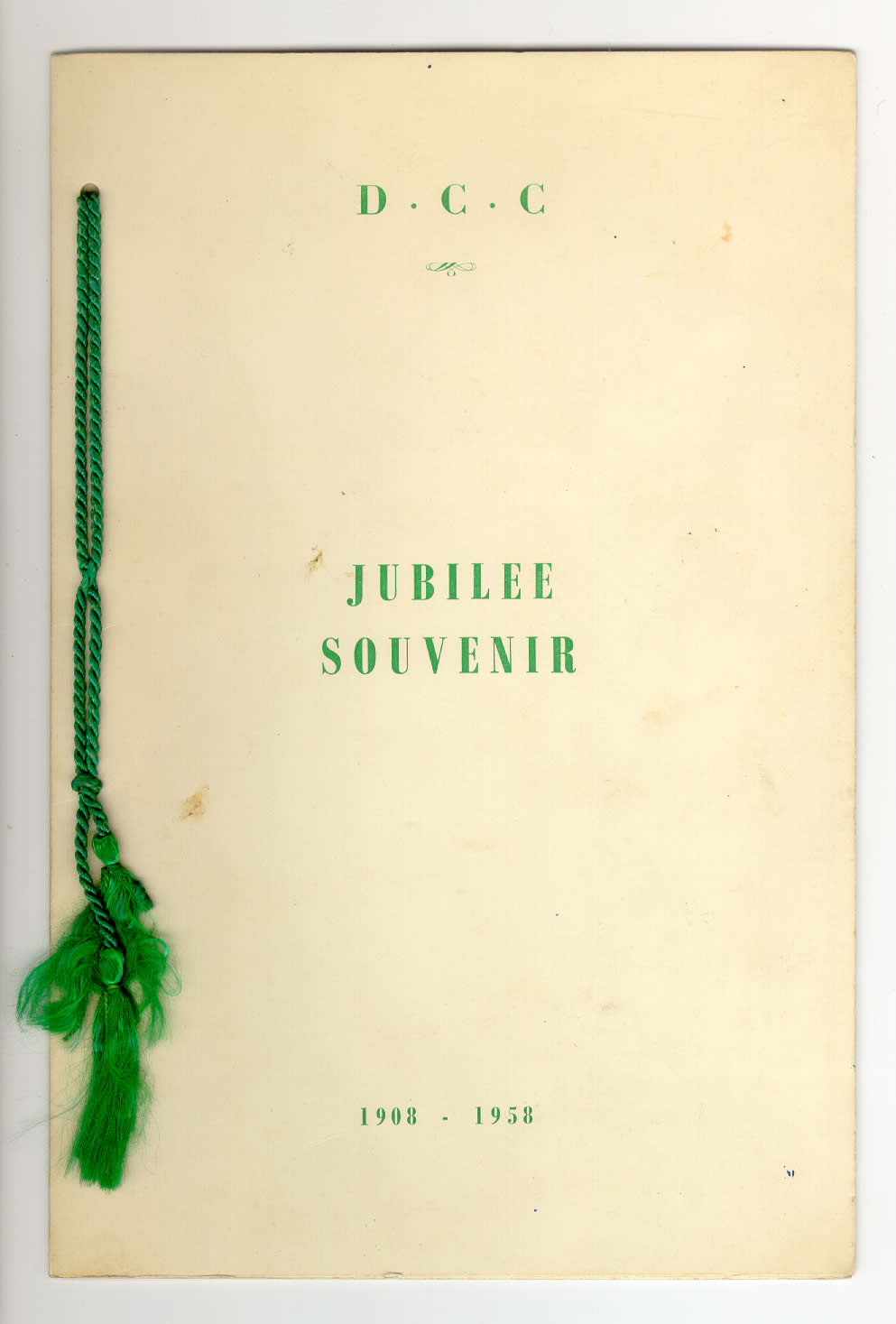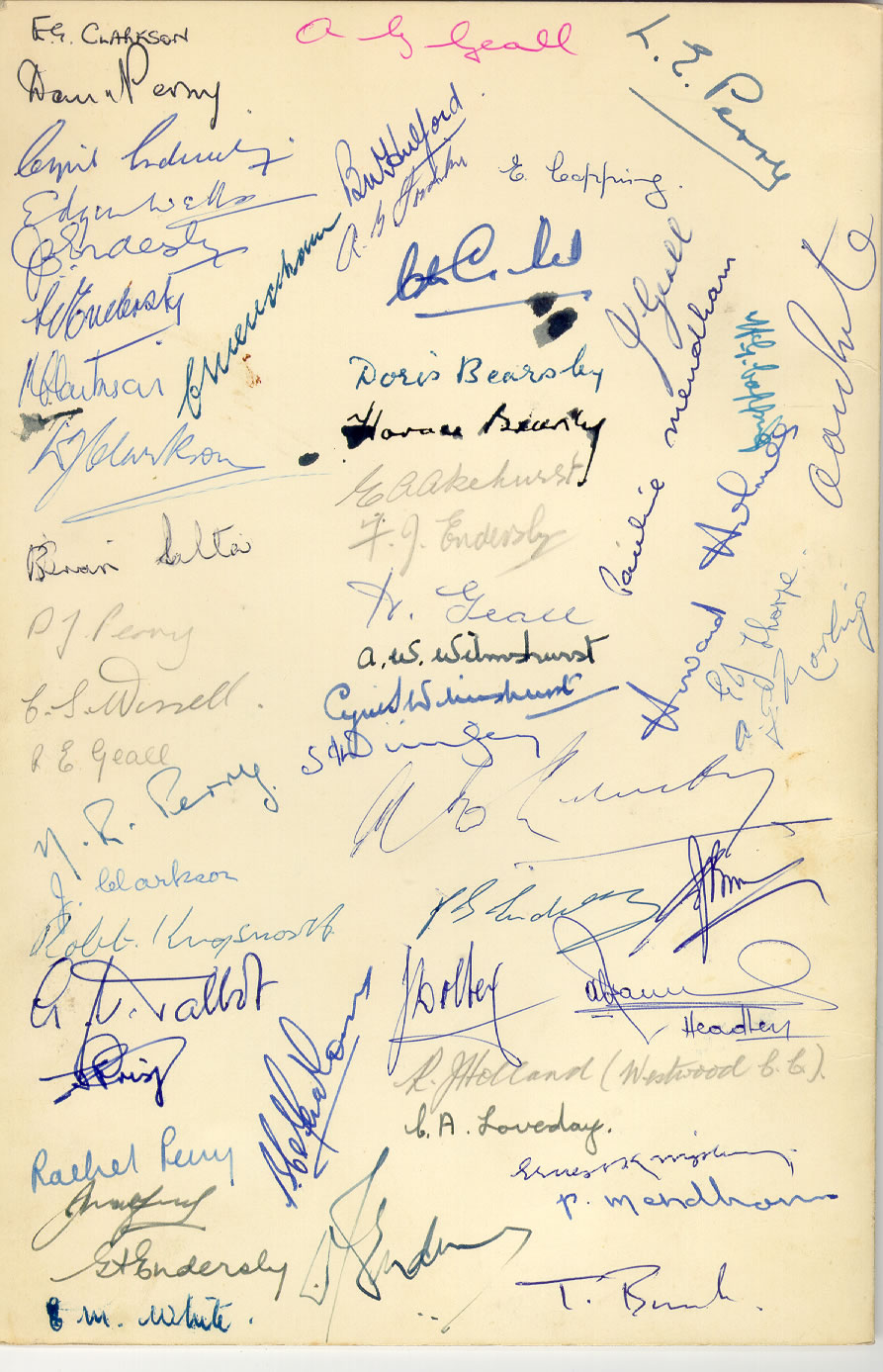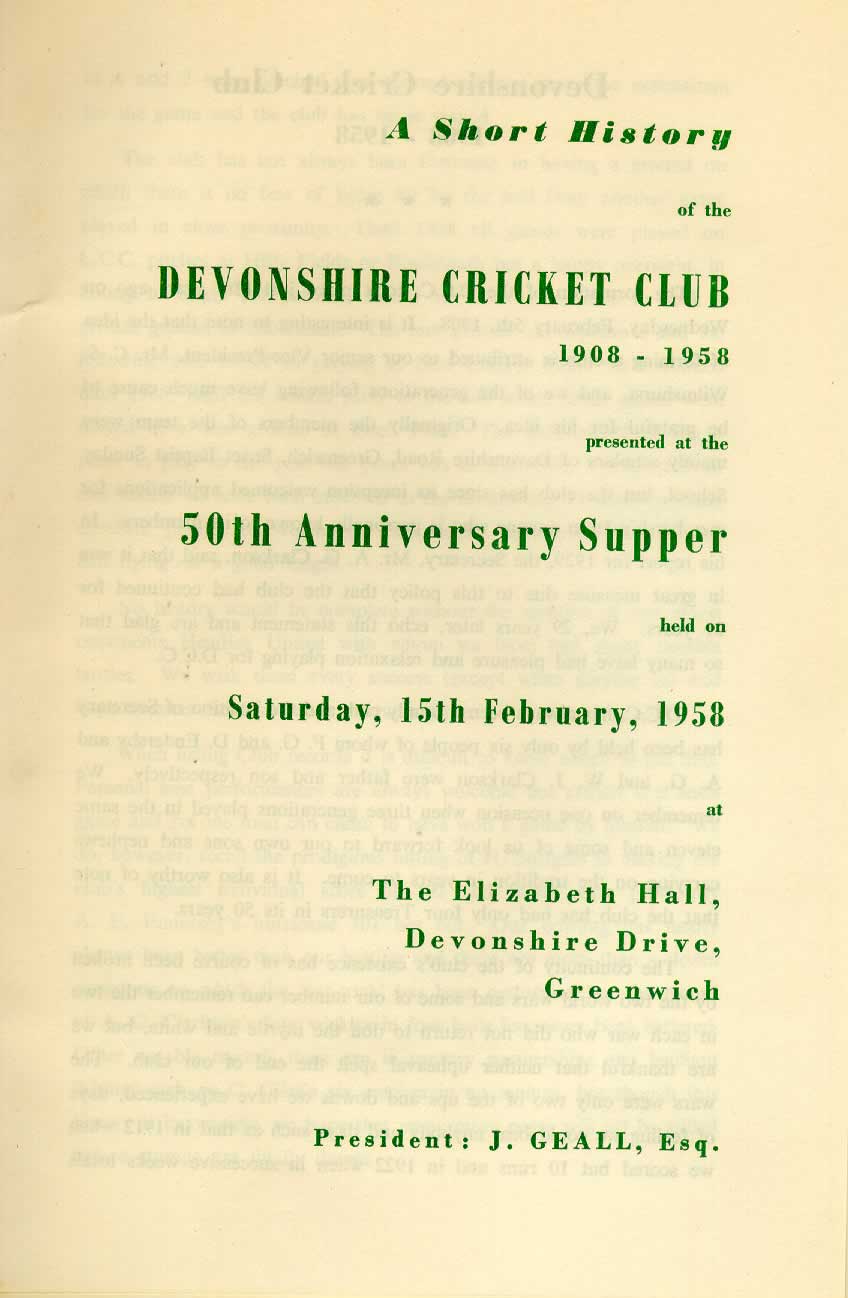History
The club was founded in 1908 by members of the Devonshire Road Baptist Church in Greenwich. The street was later renamed Devonshire Drive, and the Baptist Church still meets on the same site, but in modern premises. The brief history below was included in the 1958 Jubilee Souvenir booklet which carries an account of a notable match against Headley in 1913.
Jubilee Souvenir (1958)
Devonshire
Cricket Club 1908 - 1958
* * *
The
formation of the D.C.C. took place just fifty years ago on Wednesday,
February 5th, 1908.
It is interesting to note that the idea of forming a club is attributed
to our senior Vice-President, Mr. C. S. Wilmshurst, and we of the
generations following have much cause to be grateful for his idea.
Originally the members of the team were mainly scholars of Devonshire
Road, Greenwich, Strict Baptist Sunday School, but the club has
since its inception welcomed applications for membership from anyone
who is personally known to its members. In his report for 1929,
the Secretary, Mr. A. G. Clarkson, said that it was in great measure
due to this policy that the club had continued for 21 years. We,
29 years later, echo this statement and are glad that so many have
had pleasure and relaxation playing for D.C.C.
D.C.C. has always been a family club and the position of Secretary
has been held by only six people of whom F. G. and D. Endersby and
A. G. and W. J. Clarkson were father and son respectively. We remember
on one occasion when three generations played in the same eleven
and some of us look forward to our own sons and nephews carrying
on the tradition in years to come. It is also worthy of note that
the club has had only four Treasurers in its 50 years.
The continuity of the club's existence has of course been broken
by the two world wars and some of our number can remember the two
in each war who did not return to don the myrtle and white, but
we are thankful that neither upheaval spelt the end of our club.
The wars were only two of the ups and downs we have experienced,
days of feeling we could beat anybody and days such as that in 1912
when we scored but 10 runs and in 1922 when in successive weeks
totals of 6 and 7 were reached, but through all the years
the enthusiasm for the game and the club has never waned.
The club has not always been fortunate in having a ground on which
there is no fear of being hit by the ball from another game played
in close proximity. Until 1924 all games were played on L.C.C. pitches
at Hilly Fields or Blackheath but a happy oversight, in failing
to apply for permits, forced the 1924 committee to seek a private
ground at Shortlands. The rent proved too expensive and the following
year found us playing at New Eltham where we continued until 1938,
until the season prior to the war when home games were played at
a new ground at Eden Park, The problem of finding a place to play
in the post-war years was considerable, but apart from one season
we have been indebted to the Beckenham Council for some excellent
pitches on which one can usually but without fear of the ball flying
off a good length.
No history would be complete without the mention of our oldest opponents
Headley United with whom we have had many notable battles. We wish
them every success (except when playing us) and hope to meet them
for many years to come.
When listing Club records it is difficult to know which to put first.
Personal best performances are always welcome but cricket is a team
game and no one man can claim to have won a game by himself. We
do, however, recall the prodigious hitting of H. Sturgess in making
the club's highest individual score of 102 and three years previously
A, E. Endersby's hurricane 101 not out. Our bowling has nearly always
been better than our batting and there are more than a dozen occasions
on which the 'hat-trick' has been performed but the record of A.
G. Clarkson's four wickets in four balls has never been bettered.
Other notable records there are in century partnerships and brilliant
fielding such as C. Giles's six catches in an innings, but though
this history is incomplete, we hope that many more pages will yet
be added before stumps are finally drawn.


